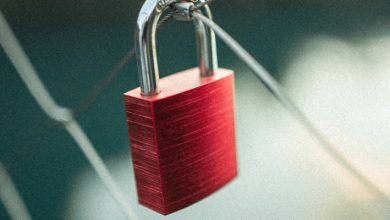How to Use Decentralized Exchanges for Enhanced Security

- Understanding the concept of decentralized exchanges
- Advantages of using decentralized exchanges over centralized ones
- Key features to look for in a decentralized exchange platform
- Tips for securely trading on decentralized exchanges
- Exploring the potential risks associated with decentralized exchanges
- Future outlook: The role of decentralized exchanges in the crypto ecosystem
Understanding the concept of decentralized exchanges
Decentralized exchanges, also known as DEXs, are a type of cryptocurrency exchange that operates without a central authority. This means that users retain control of their funds throughout the entire trading process, eliminating the need to trust a third party with their assets. By using smart contracts, decentralized exchanges allow for peer-to-peer trading of cryptocurrencies directly between users. This can enhance security by reducing the risk of hacking or theft that is associated with centralized exchanges.
One key concept to understand when using decentralized exchanges is the idea of liquidity. Liquidity refers to the ease with which an asset can be bought or sold in the market without causing a significant change in its price. In the context of decentralized exchanges, liquidity is provided by users who deposit their cryptocurrencies into liquidity pools. These pools allow for trading to occur quickly and efficiently, ensuring that users can easily buy and sell assets without experiencing significant price slippage.
Another important concept to grasp is the idea of private keys. In the world of cryptocurrency, private keys are used to access and control a user’s funds. When using a decentralized exchange, it is crucial to keep your private keys secure and never share them with anyone else. By maintaining control of your private keys, you can ensure that only you have access to your funds and that they are protected from unauthorized access.
Overall, understanding the concept of decentralized exchanges is essential for anyone looking to trade cryptocurrencies in a secure and efficient manner. By leveraging the power of blockchain technology and smart contracts, decentralized exchanges offer users greater control over their funds and reduce the risk of theft or hacking. With proper knowledge of how these exchanges operate, users can take advantage of enhanced security features and trade with confidence in the decentralized finance (DeFi) ecosystem.
Advantages of using decentralized exchanges over centralized ones
One advantage of using decentralized exchanges over centralized ones is the enhanced security they provide. Decentralized exchanges do not hold users’ funds in a central location, reducing the risk of hacking or theft. This means that users have more control over their assets and are less vulnerable to security breaches. Additionally, decentralized exchanges operate on a peer-to-peer network, eliminating the need for a third party to facilitate transactions. This reduces the risk of censorship or interference from external parties. Overall, the decentralized nature of these exchanges offers a higher level of security and trust for users looking to trade cryptocurrencies.
Key features to look for in a decentralized exchange platform
When selecting a decentralized exchange platform, there are several key features to consider that can greatly enhance security and overall user experience. One important feature to look for is **multi-signature** wallets, which require multiple private keys to authorize transactions, adding an extra layer of protection against unauthorized access. Another crucial aspect is **decentralized storage** of funds, which means that users retain control of their private keys and assets at all times, reducing the risk of hacks or theft. **Privacy** features such as the ability to trade without the need for personal information or identification can also help safeguard user data and prevent identity theft.
Additionally, **liquidity** is an essential factor to consider when choosing a decentralized exchange platform. Higher liquidity ensures that trades can be executed quickly and at fair prices, minimizing the risk of price manipulation or slippage. **User-friendly** interfaces and intuitive **trading tools** are also important for a seamless trading experience, allowing users to navigate the platform easily and make informed decisions. Moreover, **community governance** mechanisms can help ensure transparency and accountability in the platform’s operations, giving users a voice in decision-making processes.
In conclusion, by prioritizing features such as multi-signature wallets, decentralized storage, privacy, liquidity, user-friendly interfaces, trading tools, and community governance, users can maximize security and enhance their overall trading experience on decentralized exchange platforms. These features work together to create a secure and user-centric environment that empowers individuals to trade assets freely and safely.
Tips for securely trading on decentralized exchanges
When trading on decentralized exchanges, it is crucial to follow best practices to ensure the security of your assets. Here are some tips to help you securely trade on decentralized exchanges:
- Enable two-factor authentication (2FA) to add an extra layer of security to your account.
- Use a hardware wallet to store your assets securely offline, reducing the risk of hacks.
- Avoid sharing your private keys or seed phrases with anyone to prevent unauthorized access to your funds.
- Double-check the smart contracts of the tokens you are trading to ensure they are secure and legitimate.
- Regularly update your software and firmware to protect against known vulnerabilities.
By following these tips, you can enhance the security of your trades on decentralized exchanges and minimize the risk of losing your assets to malicious actors.
Exploring the potential risks associated with decentralized exchanges
Decentralized exchanges offer many benefits in terms of security and privacy, but it is essential to be aware of the potential risks associated with using them. One of the main concerns is the lack of regulation and oversight, which can make decentralized exchanges more vulnerable to hacking and fraud. Another risk is the possibility of encountering fake tokens or scams, as these platforms do not have the same level of vetting as traditional exchanges. Additionally, since transactions on decentralized exchanges are irreversible, there is a higher risk of losing your funds if something goes wrong. It is crucial to do thorough research and due diligence before using a decentralized exchange to minimize these risks.
Future outlook: The role of decentralized exchanges in the crypto ecosystem
Decentralized exchanges play a crucial role in the ever-evolving landscape of the cryptocurrency ecosystem. As the crypto market continues to expand and evolve, the need for secure and efficient trading platforms has become increasingly apparent. Decentralized exchanges offer a viable solution to the security concerns that come with centralized exchanges, as they allow users to retain control of their funds throughout the trading process.
One of the key advantages of decentralized exchanges is their ability to operate without a central authority. This means that users do not need to trust a single entity to safeguard their funds, reducing the risk of hacks or theft. Additionally, decentralized exchanges offer greater privacy and anonymity, as users do not need to go through a lengthy verification process to start trading.
Another benefit of decentralized exchanges is their resilience to censorship and regulatory interference. By operating on a distributed network of nodes, decentralized exchanges are able to continue functioning even if some nodes are taken offline. This makes them a valuable tool for users in regions where access to traditional banking services is limited or restricted.
Looking ahead, decentralized exchanges are poised to continue playing a significant role in shaping the future of the crypto ecosystem. As more users become aware of the security and privacy benefits offered by decentralized exchanges, we can expect to see increased adoption and innovation in this space. With ongoing developments in blockchain technology and user-friendly interfaces, decentralized exchanges are well-positioned to become the go-to choice for traders looking to enhance their security and control over their funds.



